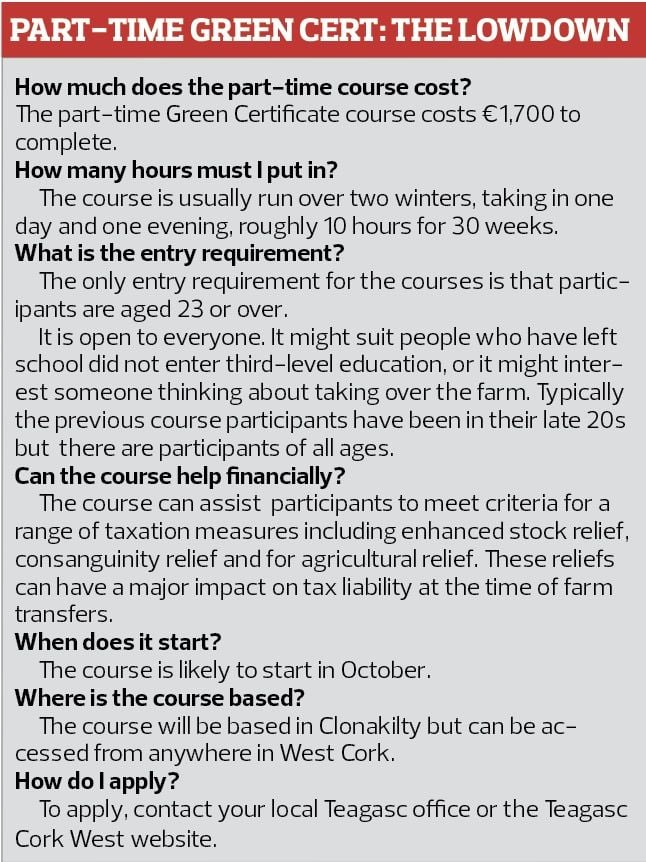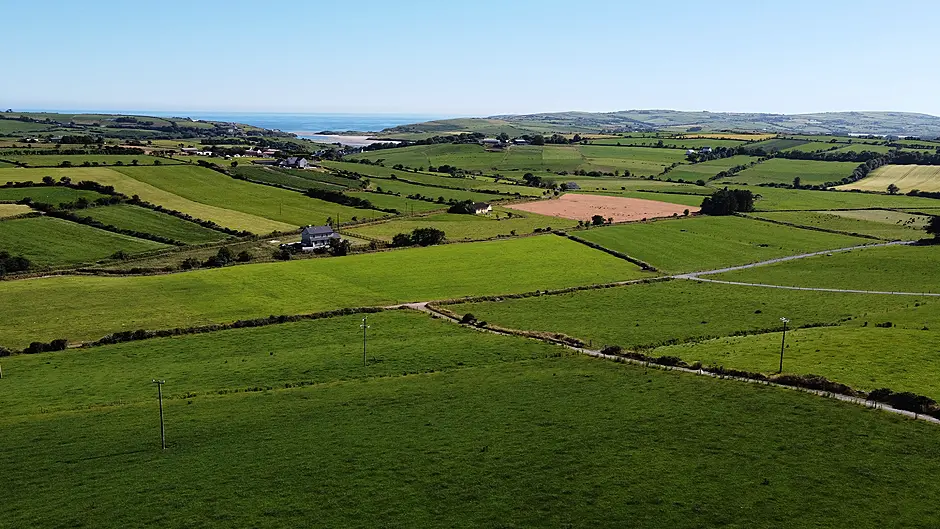A course starting this autumn offers an opportunity to study part-time to earn the Green Certificate in West Cork. Patrick Flannery, a Teagasc education officer based locally explained the benefits.
THERE is a high level of agricultural education within the Irish farming community, and Anne Marie Butler, Teagasc head of education notes that Irish famers match up very well with their European counterparts in terms of training.
Studies have shown a clear positive return from completing agricultural education, and there is a payback to the cost and time involved. Obtaining qualified farmer status can be beneficial for scheme qualification and tax benefits.
One approach which we offer in West Cork is the part-time Green Certificate.
People involved in farming aged over are catered for with this course. Everything is geared towards providing training in advance of becoming more involved on the farm.
While the course does involve some class work there is an emphasis on outdoor work and being hands-on with machinery, equipment and livestock. Much of the practical elements take place at Clonakilty Agricultural College with experienced staff at the heart of the practical training. The college’s vehicles, practise driving yard, workshops, stock and land all add to the training.
Students learning from each other in this environment.
While student backgrounds can be somewhat similar, they also bring different skills and knowledge. The sharing and the exchange of this skill and knowledge is key to the course. Brian Leonard was a 2024 course graduate from Reengaroga Island, Baltimore. ‘Interesting and relevant discussions took place amongst ourselves,’ he said.
Student interaction adds to the learning. Those with a flair for the practical side support those for whom it is a challenge. Often then, the roles are reversed with the written work. This level of connection and contact creates a network which lasts once course is completed and this is hugely valuable in the farming world.
A home farm diary is kept to connect course work with ongoing farming.
The part-time course hinges on the idea that learners can fit the course in around their lives. This of course brings challenges. Yet, over and over, I see people working through the challenges to get their Green Cert done.
The local nature of the course is important to us. Students find comfort and practical benefit in having classes and help near to hand.
An emphasis is placed on providing support to students. There is a high level of contact on the course which allows students to cover the material in class. Group size is relatively small which allows for comfortable interaction. There is also online support and online resources available which can be accessed at any time.
Continuous assessment has benefits in terms of spreading the assessments over the length of the course. Dave Moloney form Kilanetig West is a course graduate and 2021 National Student of the year winner. ‘Not being a fan of the books, I was always picking up something,’ he said. Assessments are a mix of farming skills, projects, and written tests. This tries to reflect that someone who completes the course may in any one day be working with livestock, machinery, and a farming app on their phone.
Part of the course focuses on starting your own business.
With so many considering options within the farm this gives students insight into what is involved. It takes some of the mystery out of it while emphasising what is involved in starting something different on the farm. Brian Leonard suggests the ever growing need to consider ‘alternative farming options’.
Your local Cork West Teagasc office is ready to provide more information and answers questions about the course. All this is by way
of aiming to maintain the tradition of agricultural education so that we will continue to show the way for farming in Ireland and Europe.









